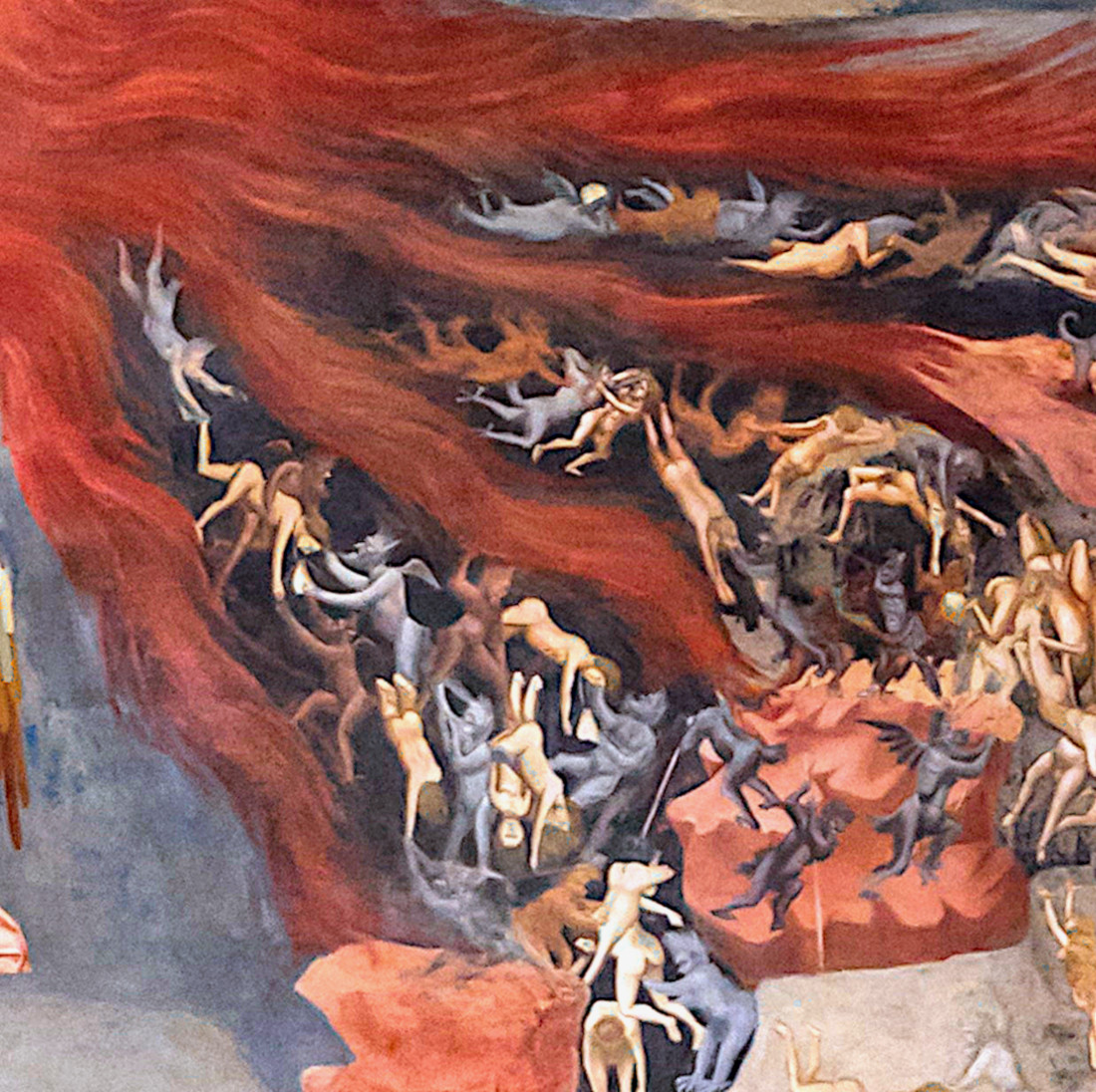Thursday, 9 April 2015
Preaching on Hell--an aside
Posted by
Supertradmum
Is it proper in our own age to preach on hell? We answer thus: first, it is certainly better to go to God by the way of love than that of fear. The redemptive Incarnation invites us continually to the way of love. But fear is today a necessary element of salvation, just as surely as it was when the Fathers preached the gospel. We conclude, with the author of the article on hell in the Dictionnaire de theologique "Preachers must indeed omit all purely imaginary descriptions. The simple truth is sufficient. But to keep systematic silence on any portion of Christian teaching, particularly on forethought for our last end, is to ignore radically the spirit of Christianity. This life is a road, which ends inevitably either in hell or in heaven." [313]
Further, our Lord deigns frequently to give privileged souls a higher knowledge of hell, by contemplation, or by vision, imaginary or intellectual, in order to carry them on to greater hatred of sin, to growth in charity, to more burning zeal for the salvation of souls. It is sufficient here to recall the visions. Like St. Theresa, many saints were thus illumined by contrast, on the infinite greatness of God and the value of eternal life.
St. Theresa speaks thus: "I often ask myself how it came that pictures of hell did not lead me to fear these pains as they deserve. Now I feel a killing pain at sight of the multitudes who are lost. This vision was one of the greatest graces the Lord has given me. From it arise also these vehement desires to be useful to souls. Yes, I say it with all truth: to deliver one soul from these terrible torments, I would gladly, it seems to me, endure death a thousand times." [314] Everlasting Life
For the three kinds of fear, see the text. Here just a bit:
St. Catherine of Siena says that, with progress in charity, filial fear grows until mundane fear disappears completely. The apostles, after Pentecost, began to glory in their tribulations. They rejoiced in being judged worthy to suffer for our Lord. Before the Ascension, feeling acutely their own impotency, they feared the persecutions our Lord had foretold. On Pentecost they were clarified, fortified, confirmed in grace.
Filial fear in heaven is called reverential fear. "The fear of the Lord is holy, enduring forever and ever." [328] Thus the psalm. It will no longer be fear of sin, fear of being separated from God, but deep reverence. Seeing the infinite grandeur of the Most High, the soul sees its own nothingness and fragility. God is reality itself. "Ego sum qui sum." In this sense, as we sing in the preface, even the Powers tremble. This gift of reverential fear exists even in the holy soul of our Savior, just as do the other gifts of the Holy Spirit.
Reverential fear appears in the saints even in the present life. When St. Peter, after the first miraculous catch of fishes, came to Jesus, he said: "Depart from me, for I am a sinful man, O Lord." [329] It is then that Jesus said to him: "Fear not, from henceforth thou shall catch men." And Peter, James, and John left everything to follow Him.
